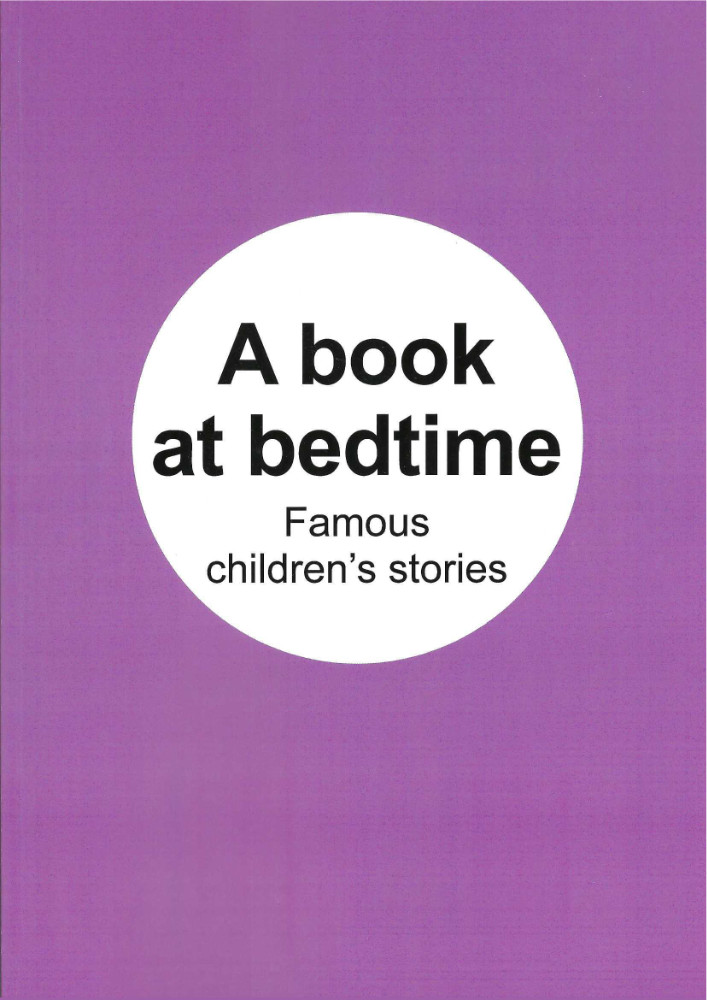UK Dementia Book Club
Dementia friendly reading books
Sometimes, when a person living with dementia stops reading books, it is assumed it is because they are no longer able to read.
This is not usually true!
It is more likely that the book is too complex, and the person struggles with abstract thinking, the font is confusing and small, the page too busy or the story too long.
We write books to enable a person living with dementia to continue the enjoyment of reading.
Book Clubs are part of many communities where all types of people gather to discuss books. Activities that can be enjoyed alone, with family or in a group can be hard to find, but for people living with dementia enjoying a book is an excellent cognitive stimulation activity. A book club creates space to enjoy conversation and the company of others. At each book club’s core, members enjoy reading, chatting, reminiscing, and succeeding!

All the books are written to enable people living with dementia to continue to enjoy reading and sharing a book. Based on the research of Dr Alan B. Stevens and Dr Cameron Camp, and following the international evidence base, the books were inspired by books written by Gail Elliot Gerontologist and Dementia Specialist, DementiaAbility, Canada.
An important feature of the book is the size, font and layout of the material, and all books are reviewed by residents living in Milford Care Homes in Derbyshire and Nottinghamshire. The books are factual, thus reducing the risk of a person finding they cannot follow complex or abstract content but have a reminiscence approach encouraging conversation and discussion. The books do not have any pictures, as this was found to cause distraction.
The books can be read alone, with family or a companion or be used in a book club in any setting.
Quality of the books
The books are deliberately printed in high quality paper, with a firm cover to enhance the sensory experience of holding and feeling a book. The enjoyment of reading for many, is not simply following the words, but experiencing the touch of the book and holding the story.
High quality printed books, also respects and values the person who is being invited to read.
We have an ever-growing catalogue with over 30 titles to choose from providing a wide variety of interests and topics.
Book Club Shop
Box Sets for your reading group or individual copies
7 books (of the same title) and Book Club facilitation instructions £85 + P&P
One book can be purchased at £13 + P&P
The books are delivered by courier, and the shipping is calculated based on the total weight of the order.
PLEASE NOTE: Payments are taken through PayPal. There is no additional charge to you, and you do not need a PayPal account. Payments can be made with most major credit and debit cards. If however you prefer to pay by BACS or cheque please contact us on lynne@lynnephair.co.uk to place your order.
This book has been written specifically for people living with dementia who find reading normal print difficult. This book tells the story of the hairdresser and Barber and reminds readers of hairstyles such as the beehive, the quiff and the blue rinse.
This book has been written specifically for people living with dementia who find reading normal print difficult. This book reminds readers of some famous British radio and television comedians such as Tony Hancock, Benny Hill, Morecambe and Wise and the Two Ronnies.
This book has been written specifically for people living with dementia who find reading normal print difficult. This book reminds readers of the world famous tennis championships, including the history of the event and some of the famous players.
This book has been written specifically for people living with dementia who find reading normal print difficult. This book reminds readers of the history of the Grand National horse race, including some of the more memorable events, riders and famous horses.
This book has been written specifically for people living with dementia who find reading normal print difficult. This book tells the stories of the four patron Saints of the countries that make up Britain, looking at the legends and facts of each Saint.
This book has been written specifically for people living with dementia who find reading normal print difficult This book reminds readers of the major world religions. It explains how they started and what their followers believe.
This book has been written specifically for people living with dementia who find reading normal print difficult. This book reminds readers of the pleasures of children’s books, including classics such as Peter Rabbit and Winnie the Pooh and more recent picture books such as the Very Hungry Caterpillar.
This book has been written specifically for people living with dementia who find reading normal print difficult. This book reminds the reader of favourite British meals from around the UK, from Scottish shortbread or Roast Beef to Bakewell tarts.
This book has been written specifically for people living with dementia who find reading normal print difficult. This book reminds readers of the many traditions around Father Christmas characters across the world, including how children experience him and what they leave out in expectation.
This book has been written specifically for people living with dementia who find reading normal print difficult. This book explores the history of the Olympic games from ancient to modern. The book reminds the reader of highlights of both the Olympic and paralympic games.
This book has been written specifically for people living with dementia who find reading normal print difficult. The book reminds readers of the traditional trip to the British seaside, including mentions for many of the most popular resorts such as Blackpool, Brighton, Great Yarmouth and Llandudlo.
This book reminds the readers of how the Scouts, Guides and Boys Brigade began and the adventures children had in the uniformed organisations.
This book reminds readers of the routines and traditions of baby care in the mid-twentieth century and remembers the Welfare Clinic, large prams, terry towelling nappies and Farley’s rusks.
The book reminds the reader of the annual mass football game which takes place in Ashbourne, Derbyshire on Shrove Tuesday and Ash Wednesday, remembering its long history and its ‘anything goes’ excitement.
The book reminds the reader of the history of the royal residences used by our Queen, remembering Buckingham Palace, Windsor Castle, Sandringham House and Balmoral Castle.
The book reminds the reader of the development of stately homes in Britain, remembering the people who lived and worked in the houses and focusing on Chatsworth House in Derbyshire and Blenheim Palace in Oxfordshire.
The book reminds the reader of the history of holidays through the ages, from the Crusades to package holidays of the 1970’s, remembering holiday camps, and TV programmes such Wish you were her with Cliffe Michelmore.
This book has been written specifically for people living with dementia who find reading normal print difficult.. This book reminds readers of the English tradition of fêtes and shows, including some of the most popular activities such as hoopla and the tombola.
The book reminds the reader of the development of the sports in which they may have participated at school, remembering football, cricket, hockey, netball and rounders.
The book reminds the reader of National Service, remembering the varied experiences of the men who were conscripted between the Second World War and 1963.
The book reminds the reader of the development of the industrial revolution and its impact on rural and town life in the Derwent Valley, and how the innovations changed the world for ever.
The book reminds the reader of the life of Charles Dickens, remembering his most popular books such as ‘Great Expectations’, ‘David Copperfield’ and ‘A Christmas Carol’.
The book reminds the reader of the joys of home preserving and brewing, using fruit and vegetables from the countryside and the vegetable patch.
This book reminds the reader about the history of advertising and how magazine, radio and television adverts such as “Pick up a Penguin”, “the Milky Bar Kid” and “Go to work on an Egg” became part of household language.
The book reminds the reader of the history of the traditions that have developed around the Christmas celebrations, remembering Christmas foods, Twelfth Night traditions, the school Nativity play and pantomimes.
The book reminds the readers of the history of TV and radio and some favourite programmes such Hancock’s half hour, Sunday night at the London Palladium and Dads Army.
This book reminds readers of the long and eventful reign of Queen Elizabeth II, including her childhood, coronation, Jubilee celebrations and her funeral.
This book reminds readers of the traditional festivals held around Britain in the summer, such as Wimbledon, The Proms, Glastonbury as well as local events such as well dressing, village fetes, county shows and carnivals
The book reminds the reader of the history of drinking tea in Britain and remembers the development of our favourite biscuits to accompany a cup of tea.
This book has been written specifically for people living with dementia who find reading normal print difficult. This book tells the story of the pop star Elvis Presley and remembers his songs and films.
The book reminds the reader of the pleasures of sharing games with friends in the playground, remembering such games as hopscotch, skipping, marbles, ‘It’ and conkers.
This book has been written specifically for people living with dementia who find reading normal print difficult. This book describes the history of America and highlights famous presidents from the birth of the nation.
This book explores the history of Di it Yourself, and reminds the reader of how B&Q started, and the joys and disasters of home improvement!
Dementia Book Club Returns and Refund Policy
Your legal rights
When you buy a book from Lynne Phair Consulting Ltd, in law you have several rights as a consumer. These include the right to claim a refund, replacement, repair and/or compensation where the goods are faulty or misdescribed. As the books are purchased online you also have the right to a refund if you simply change your mind.
You have 14 calendar days from the day after you receive all goods in an order. Once you’ve cancelled an order you then have a further 14 days to send the goods back.
Once the book is received, and condition that it was in when despatched is checked, a refund of the book(s) price will be made via the PayPal account.
Postage and packing will not be refunded either for the original purchase or for returning the goods.
To advise the publisher of your intention to return the goods please email lynne@lynnephair.co.uk
How to carry out a Reading Screen.
It may be helpful to establish if a person is able to read by carrying out a reading screen.
As the ability to read, is embedded in procedural memory, it is likely that, if they
could read before they developed dementia, they will still have the ability. It may, however, be a little “rusty”.
You will be surprised how many people can still read, if given the correct type of
book and given the opportunity.
Watch this short video to learn how to do a reading screen with person who is living with dementia.
The reading screen will help identify the size of font the person may need for signs as well as for reading books.
Remember:
- Ask them to help you.
- Ask them to read and do what it says- to learn if they can read and understand the instruction.
- Don’t talk while they are doing it… it may distract them.
- They cannot fail – how ever far they get and whether it is wright or wrong, .. Thank them for their help.
- You may want to repeat the screen at different times to establish if this helps them.
- Only repeat it 2 times more.
A copy of the reading screen in provided with every book club set of 7 books purchased
Reference to the Reading Screen:
Benigas J, Brush J, Elliot G (2016) Spaced retrieval Step by Step. An evidence-based memory intervention Health Professions Press, Maryland USA.










































